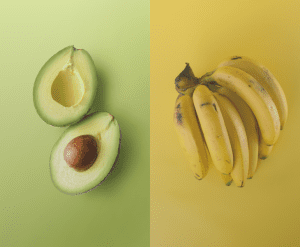Dark chocolate is often hailed as a superfood, but is it truly as healthy as people claim? Many of us indulge in dark chocolate, believing it to be a guilt-free pleasure packed with health benefits.
But with so much information floating around, it can be challenging to differentiate between what’s true and what’s just a myth.
In this blog post, we’ll explore common myths about dark chocolate and reveal the facts, helping you make informed decisions about your favorite treat. So is dark chocolate good for you?

What Makes Dark Chocolate Different from Other Chocolates?
Dark chocolate stands out due to its high cocoa content and lower sugar levels compared to milk or white chocolate. It contains antioxidants, fiber, and essential minerals like iron, magnesium, and zinc.
However, not all dark chocolates are created equal. The percentage of cocoa matters—generally, the higher the cocoa content, the better the potential health benefits.
Myth 1: All Dark Chocolates Are Healthy
One of the most widespread myths is that all dark chocolates are healthy. While it’s true that dark chocolate has health benefits, these benefits largely depend on the cocoa content.
Dark chocolate with a cocoa content of 70% or higher is more likely to offer health advantages. However, many commercially available dark chocolates contain added sugars, unhealthy fats, and artificial flavors that diminish these benefits.
Fact: Choose High-Quality Dark Chocolate for Health Benefits
To truly reap the benefits of dark chocolate, opt for varieties with minimal ingredients, high cocoa content, and low sugar. Organic and fair-trade options are often a good choice as they are less likely to contain harmful additives.
Myth 2: Dark Chocolate Helps You Lose Weight

Some people believe that dark chocolate can aid in weight loss due to its lower sugar content and appetite-suppressing effects. While dark chocolate can be a healthier alternative to other sweets, it’s not a miracle weight loss tool.
Fact: Dark Chocolate Should Be Consumed in Moderation
Dark chocolate contains calories and fats, and consuming it in large amounts can contribute to weight gain. If you’re trying to lose weight, it’s important to enjoy dark chocolate in moderation as part of a balanced diet.
Myth 3: Dark Chocolate Improves Heart Health
There’s a popular belief that dark chocolate is good for heart health due to its flavonoid content. Flavonoids are antioxidants that can help improve blood flow, lower blood pressure, and reduce the risk of heart disease.
Fact: Dark Chocolate Can Support Heart Health—But There’s a Catch
While flavonoids in dark chocolate can benefit heart health, the effect is most pronounced when consumed in small amounts. Overindulging in dark chocolate can offset these benefits by increasing calorie and sugar intake, which could negatively impact your heart health over time.
Myth 4: Dark Chocolate Is a Great Source of Nutrients
Some people consider dark chocolate to be a rich source of essential nutrients, justifying regular consumption as a healthful snack. While it’s true that dark chocolate contains some beneficial nutrients, it’s not a substantial source of vitamins or minerals.
Fact: Dark Chocolate Offers Some Nutrients but Shouldn’t Replace Whole Foods
Dark chocolate can provide a small amount of nutrients like magnesium and iron, but it shouldn’t be relied upon as a primary source of these nutrients. A diet rich in whole foods like fruits, vegetables, nuts, and seeds will offer far more nutritional value.

Myth 5: Dark Chocolate Boosts Brain Function
Another common claim is that dark chocolate can improve brain function and cognitive abilities. This belief is based on the idea that the flavonoids in dark chocolate can increase blood flow to the brain.
Fact: Dark Chocolate May Enhance Brain Function Temporarily
Some studies suggest that dark chocolate can improve brain function, particularly in the short term. The caffeine and theobromine in dark chocolate can provide a mild mental boost. However, more research is needed to determine the long-term effects of dark chocolate on brain health. It’s important to incorporate other brain-boosting foods like fatty fish, nuts, and leafy greens into your diet as well.
The Right Way to Enjoy Dark Chocolate: Tips for Healthy Indulgence
To enjoy the benefits of dark chocolate without the drawbacks, consider the following tips:

- Choose High-Quality Brands: Look for dark chocolate that contains at least 70% cocoa. Check the ingredient list to ensure it doesn’t contain unnecessary additives or high amounts of sugar.
- Practice Portion Control: Stick to a small portion, about 1 ounce (28 grams), to enjoy the health benefits without overindulging.
- Pair with Healthy Foods: Pair dark chocolate with nuts, fruits, or yogurt for a balanced snack that provides both satisfaction and nutrition.
- Mind the Timing: Enjoy dark chocolate as an occasional treat rather than a daily habit, and try to have it earlier in the day to prevent late-night sugar cravings.
Final Thoughts: Balance Is Key

Dark chocolate can certainly be a part of a healthy diet, but it’s essential to separate the myths from the facts. While it does offer some health benefits, these can easily be negated by overconsumption or choosing low-quality chocolate.
Remember, moderation is key. If you’re looking for a way to incorporate dark chocolate into a balanced diet, consider it as an occasional treat rather than a daily indulgence. For more health tips and advice, check out resources like the Harvard T.H. Chan School of Public Health or Mayo Clinic’s insights on chocolate and heart health.
Enhance Your Health Knowledge
Are you interested in learning more about how to make healthy choices? Subscribe to our newsletter for the latest health tips, myth-busting articles, and expert advice. Don’t let misinformation cloud your path to wellness—stay informed with us!
Important Links:








